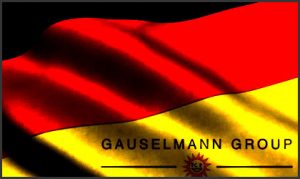In eastern Germany and a new regulation that is due to see the number of slot arcades in the city of Berlin drop by around 80% has reportedly provoked condemnation from a number of operators including Gauselmann Group.
According to a Monday report from iGamingBusiness.com, the new Berliner Spielhallengesetz law came into force last week and will prohibit firms inside the boundaries of the giant metropolis from operating a slot arcade within approximately 1,640 feet of another analogous facility.
Severe stipulations:
It was reported that the revised regulation for the largest city in Germany will also ban such venues from being located any nearer than about 656 feet from a school or ‘youth facility,’ cut their maximum individual offering to only eight machines and reduce their operational hours to just the four hours from eleven o’clock in the morning. The source explained that the fresh law moreover mandates that any operation unable to meet these restrictions be closed before the end of the year to leave the conurbation of over 3.6 million inhabitants with only 120 arcades featuring an aggregate estate of less than 1,000 machines.
Considerable consequences:
GamblingInsider.com used its own report into the matter to  detail that Gauselmann Group is responsible for only five video slot arcades in the German capital but asserted that the new regulation will drive players to illegal gambling alternatives such as those offered online. This source reported that the Espelkamp-headquartered firm’s Vice-Chairman, Manfred Stoffers, declared that local legislators are forcing the roughly 500 such venues in Berlin to ‘die a senseless death’ by taking the city’s offering well below the nationwide average of 170 machines for every 100,000 people.
detail that Gauselmann Group is responsible for only five video slot arcades in the German capital but asserted that the new regulation will drive players to illegal gambling alternatives such as those offered online. This source reported that the Espelkamp-headquartered firm’s Vice-Chairman, Manfred Stoffers, declared that local legislators are forcing the roughly 500 such venues in Berlin to ‘die a senseless death’ by taking the city’s offering well below the nationwide average of 170 machines for every 100,000 people.
Stoffers reportedly proclaimed…
“Arcades will die a senseless death as this will not bring the improved player protections promised by Berlin legislators but instead the exact opposite. These are professional coin-op machine merchants who have created jobs subject to compulsory social security contributions and had considered that their investment in Berlin was an investment in their future.”



